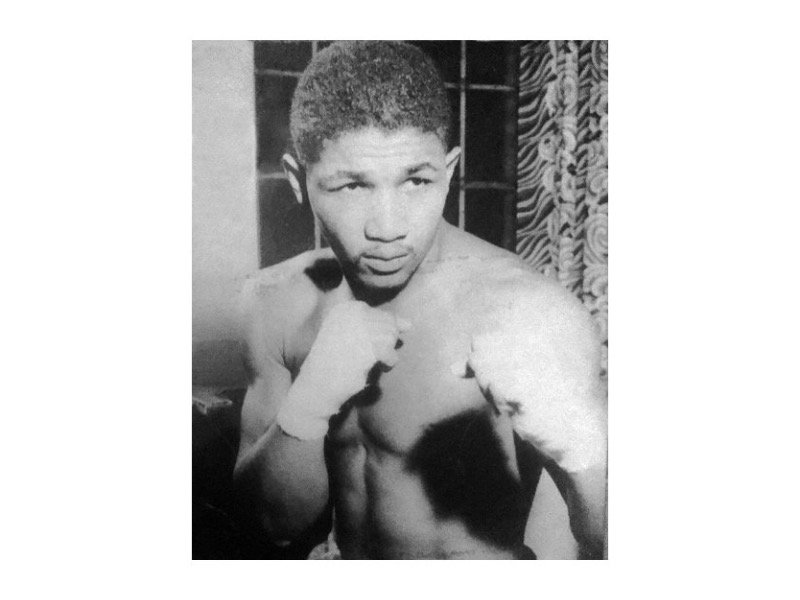Milwaukee boxer Ad Wolgast was so sure of his own indestructibility in the ring that he once offered to let an opponent put horseshoes in his gloves, and then bet the guy $2,500 that he still couldn't knock him out.
The opponent was Battling Nelson, and exactly 100 years ago today their fight for the lightweight (then 133 pounds, today 135) championship of the world made most fights since then look like a "pink tea," which was Wolgast's favorite derogatory term for anything less than the all-out, hell-for-leather combat he waged in the ring.
Wolgast was still technically alive when the sport that made him famous became known, sometime in the early 1950s, as the "Sweet Science," and if he'd had any functioning brain matter left that designation would have disgusted the man who won the title from Nelson on Feb. 22, 1910, when the referee stopped their fight in the 40th round. (It was scheduled for 45 rounds; championship fights last 12.)
Adolph Wolgast was born Feb. 8, 1888, in Cadillac, Mich. He arrived in Milwaukee in 1907, and headquartered at Paddy Dorrell's beanery on North 5th Street near Wells, which had a boxing gym in back.
Nelson, born in Denmark but raised in northern Illinois, had gotten his own start at Dorrell's a few years earlier. Although officially prohibited by state statute in the early 20th century, boxing was big here thanks in large part to Mayor David Rose, who once replied to Gov. Robert A. LaFollette's threat to dispatch the militia to Milwaukee if Rose didn't stop allowing prize-fighting in the city: "You had better send enough militia and deputies to fight the entire police force of Milwaukee. I am running this town and I am going to permit boxing."
In addition to their Milwaukee connection, Wolgast and Nelson shared a sneering disdain for the notion that boxing was the manly art of self-defense. Their strategy was to let the other guys wear themselves out punching them, and then go to town.
They were so much alike, in fact, that they hated each other's guts. When they stepped into the ring at Point Richmond, Calif., for the championship fight that was as huge in its time as a Super Bowl is today, their first order of business was to agree to toss the Marquis of Queensbury rulebook that governed behavior in the ring into nearby San Francisco Bay. For the next two hours they punched, butted, mauled and even bit one-another without letting up.
Milwaukee native Teddy Murphy, Nelson's friend and one-time manager, was there. "From the start, Ad and Bat stopped everything that came their way," he recalled a couple decades later. "Round after round, they kept up this double-barreled massacre, and the honors were fairly even."
In the 23rd round, Nelson -- the defending champion -- knocked Wolgast down. But Wolgast didn't stay down, and from there on out the only thing Nelson had going for him was his freakish stamina and ability to eat leather like he couldn't get enough of it.
Another on-site witness was Richard S. Davis, later a prize-winning reporter for The Milwaukee Journal. "Nelson took punch after punch in the face and ribs until he looked like a great chunk of round steak down as far as the belt," Davis wrote 43 years after the fact.
By the 39th round, Davis said, whenever a Wolgast punch landed on Nelson's gory face "it was almost like a child pushing his fists into a moist mud pie."
The slaughter was finally stopped in the next round, and two weeks later more than 1,000 cheering fans greeted the new champion when Wolgast stepped off the train at Milwaukee's Union depot. "Gee, it feels good to be back home," said the "hero of the town."
With a big crowd following every place he went, one of Wolgast's stops that night was The Milwaukee Sentinel, where he elaborated on his feelings about his adopted hometown (after announcing that he would never sully his championship belt by risking it against a negro): "I am still the Milwaukee boy, and I can't see why they are writing about Cadillac. Cadillac is no home, but I have fought here most and my friends are here, and I'm still the Milwaukee boy."
Wolgast lost his title to California's Willie Ritchie in 1912. They fought again here on March 12, 1914, selling out the then-Auditorium (now the Milwaukee Theater) and taking in a gate of $39,755 -- a world record at the time. No official decision was allowed, but most newspaper reporters said Ritchie won. Wolgast bitterly protested on the grounds that he was too great a fighter to lose to somebody named Willie.
That same year, a newspaper story took inventory of the physical toll boxing had taken on Wolgast. The damages included two cauliflower ears, multiple broken arms, hands and ribs, and a nose so flattened by punches that Wolgast had it injected with paraffin and reshaped. (When a pimple cropped up on the rebuilt schnozz, though, "he squeezed it (and) kept on squeezing it," until "all the paraffin had leaked out through that pimple.")
On Feb. 28, 1917, the Milwaukee boy came home again. This time, no crowds turned out to greet Wolgast, who was taken by then-heavyweight champion Jess Willard to Sacred Heart Sanitarium, "broken in health and ailing mentally," according to The Journal. For 14 months, Wolgast was confined to an asylum as mentally incompetent. The diagnosis was that the fellow who prided himself on his invincibility was, to use the term popular then, slug-nutty. Today it's called pugilistic dementia.
The day after Wolgast was released, he announced that he intended to make a boxing comeback. He did have a few inconsequential fights (and a "goat gland operation" that worked as well as that paraffin), and in 1923 Wolgast was committed to the first in a series of California institutions he would occupy for the rest of his life.
When he died on April 14, 1955, the fighter known in deference to the state of his birth as the Michigan Wildcat had spent more than half of his 67 years in captivity.
Until he was too old, blind and weak, the pathetic little warhorse always trained diligently in makeshift gyms set up for him at the asylums, because in what was left of Wolgast's mind he was still the toughest lightweight in the world, ready to take on all comers.







